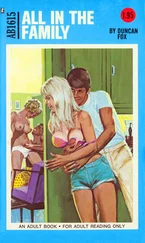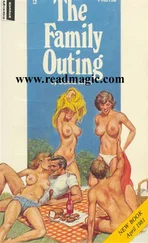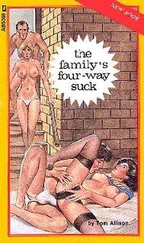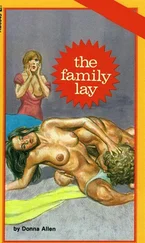“Benefit of the doubt? And that extends to pretending to expel her son, knowing he’s done nothing wrong?” I’m not sure I’ve ever felt as disgusted by anything in my life.
“Justine, I know Anne Donbavand. You don’t. I know how hard it must be for poor George to live with her, and I judged that it would only get harder for him if another powerful grudge were to be added to the mix. George loved this school, and he was going to have it taken away from him. I didn’t want him to endure that pain. So . . . yes, it’s unorthodox, but Anne’s logic made sense to me: cancel out the pain by extinguishing his love for Beaconwood. Would you want to attend a school that booted you out on a bogus charge? Or would you hate that school, and consider yourself fortunate to be rid of it? I was led to believe lives were at stake, Justine. What would you have done?”
“Not what you did,” I say angrily. How dare she play tag with her moral dilemma and try to make me It? I’m not head of Beaconwood and this isn’t about me. Though, since she’s brought it up . . .
I know exactly what I’d have done. It’s something I can still do. My not being head of a school will present no obstacle at all.
Pleased with my decision, I feel slightly less hostile toward Lesley. In a milder tone, I say, “So, what, you called a special school meeting, told everyone not to mention George at all, pretend he’d never been here?”
“On Anne’s instructions, yes. She warned me that people would come and ask about George once he’d gone—seemingly with his best interests at heart. She as good as ordered me to deny he’d ever been here.”
“And then I came in asking the very questions you’d been warned about.”
“Well . . . yes.” Lesley sounds apologetic.
“I have no grudge against the Donbavand family, Lesley. I’ve never met any of them, and hadn’t heard of them before this week. Whoever this threat is, it’s not me.”
“Of course it isn’t,” says Lachlan Fisher vehemently.
“You broke the glass and set off the fire alarm, didn’t you?” I ask Lesley. “You, personally. To get me out of the building.”
“Yes. I couldn’t think of a better plan at that moment.” She looks embarrassed.
“The police?” I suggest, though I have less faith in them than I did this time last week. “If the Donbavands’ lives are at risk . . .”
“I mentioned the possibility of seeking police help more than once. All I got was screaming from Anne. She told me I didn’t understand, that involving the police would be the most dangerous thing of all.”
“And you believed her.” I can’t keep the scorn out of my voice. “And so an entire school acts out the private lunacy of one disturbed woman.”
“I didn’t and don’t think it’s as simple as that,” says Lesley. “Yes, Anne was irrational much of the time. Frankly, she was a woman delirious with fear. Did she magnify the threat out of all proportion? I don’t think that’s for us to say, do you?”
Am I being unreasonable? I’m not sure I care at the moment. I’m not the one who pretended to expel George Donbavand, then pretended he didn’t exist.
“But none of this adds up, Lesley. Anne’s behavior makes no sense. If sending your children to a school puts their lives at risk, you don’t send them. If the threat’s that serious, and it’s all so top secret, why are you okay with the headmistress and all the teachers knowing about it? Aren’t you worried there’ll be some nosy teacher who’ll try to find out more?”
“I can’t answer for Anne.” Lesley looks away.
“No, but you can think critically about what she’s told you. You said before that her enemies were hell-bent on wreaking their revenge on her via her children. That suggests that Anne herself is the focus of the anger or grudge, whatever it is—not Fleur and George. Right?”
Lesley chews the inside of her lower lip as she considers this. “That hadn’t occurred to me, but . . . yes, everything Anne’s let slip suggests she’s the target.”
“Then how come Fleur and George are on twenty-four-hour lockdown while Anne goes about freely all over the world giving papers at academic conferences? Yes, I’ve Googled her—why wouldn’t I? My daughter is obsessed with George Donbavand, therefore so am I. She told me he’s got weird parents, so I thought I’d have a look online. Anne Donbavand is a university professor. Universities typically have thousands of new people joining them all the time—staff, students. Each new academic year, Anne starts from scratch with a sea of unknown faces, presumably. How come she’s not terrified one of them will be this enemy from the past that she’s so terrified of, moving in for the kill?”
“It’s natural to worry more about your children than about yourself,” says Lesley.
“Also, Anne might know which face to look out for,” Lachlan Fisher contributes. “George and Fleur may not.”
“I don’t buy it,” I tell him. “Is it normal to take on new identities, go into hiding, then announce, ‘This is our secret new identity! We’re not really the people we’re pretending to be!’?”
“I think it’s fairly common for key school personnel to be taken into a family’s confidence, yes,” says Lesley.
No. Not like this. Something smells very wrong here.
“What about Fleur?” I ask. “Was she fake-expelled too?”
“No. There was no need to lie to her. Unlike George, Fleur was never happy at Beaconwood. She was timid as a mouse, always anxious. She’ll be happier at home—even the Donbavands’ home.”
“Fleur was as worried for her parents as they were for her,” Lachlan tells me. “She hated being at school because it took her away from them. If she wasn’t with them, she didn’t know they were safe.”
“Her concentration was appalling,” Lesley says. “As anyone’s would be if their mind was on whether or not they’d find their parents still alive at the end of the school day, I suppose.”
There’s a hot ball of fury in my chest. “So Professor Anne manages to write conference papers and books—travel around the world to present her words of wisdom, advancing her stellar career—and meanwhile her daughter can’t concentrate on school work for fear of violent attacks on her family? Does that sound right to you? Why are the children the ones doing all the obvious suffering here?”
“Oh, Anne suffers,” says Lesley. “You only need to speak to her to see it. Besides, George wasn’t anxious. He was remarkably sanguine about it all. I once raised the subject with him, tactfully—mainly to see how he was bearing up. He tried to make light of it, as if having someone out there aiming to kill you and your family were no more than a minor annoyance.”
I need to get out of here. My head’s spinning. “I’ll have to tell Ellen what you’ve told me,” I say, standing up.
“I’m sure she already knows that George Donbavand is not George’s real name,” says Lesley.
My heart thumps faster. In my head it sounds like footsteps, running to catch up. “Why . . . why would Ellen know? She hasn’t said anything to me about that.”
“She wouldn’t. She’d think telling anyone, even you, would put George at risk.”
“You have no idea what Ellen knows or doesn’t know,” I snap. “Soon she’ll know that George wasn’t expelled—that’s the main thing.”
Is it?
I came here hoping for answers. Instead, I feel as if I’ve been given a bigger, more impossible puzzle than the one I came in with.
What if whoever wants to kill the Donbavands has added Ellen to their list because of her friendship with George?
No. Don’t even think it. You don’t believe in this mysterious threat to the Donbavands. Do you?
Читать дальше











